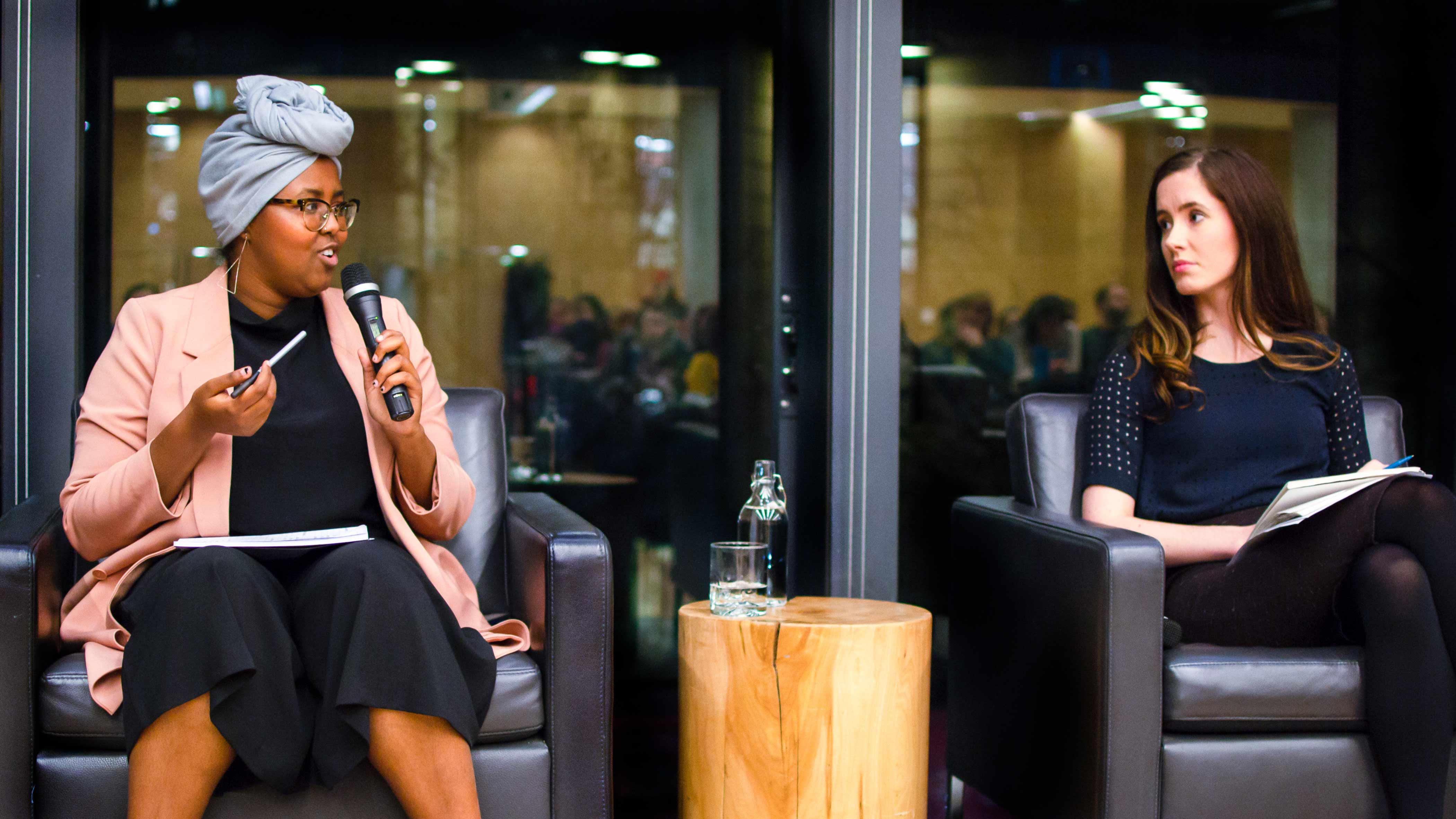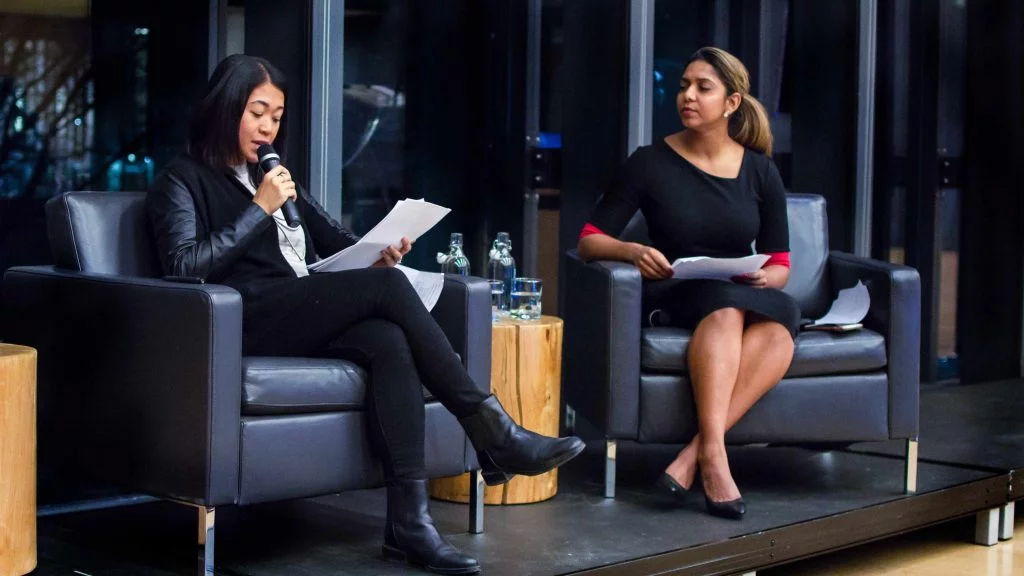On day three of the annual 16 Days of Activism Against Gender-based Violence (GBV), GATE teamed up with the Citizen Lab at the Munk School of Global Affairs and Public Policy to discuss “technology-facilitated violence, abuse, and harassment” against women and other vulnerable groups.
Panel moderator Molly Thomas, a reporter for CTV News, YesTV and CPAC, began the conversation by defining a few terms for the audience (e.g. doxxing, sextortion, trolling, etc.) and encouraging the panelists to discuss why they’re passionate about preventing GBV online. This led Takara Small, Host and Producer of the The Globe and Mail podcast “I’ll Go First,” and Founder of VentureKids Canada, to explain some of the inherent issues with addressing GBV in tech, stating, “When there is any type of digital violence, it’s often against women and people of colour, and when you have men who are creating these technologies at these start-ups…they don’t often perceive or foresee that type of violence.” Later in the discussion, Nasma Ahmed, Director of the Digital Justice Lab, reiterated this point by saying, “Technology replicates systematic inequalities.”
Due to these biases and inequalities built into tech, the panelists felt the need not only to create awareness about this issue but also to play an active part in the development of new technology that incorporates more diverse perspectives.
When an audience member asked, “How can we pressure tech companies to do more around GBV and harassment online?” Irene Poetranto, Senior Researcher at The Citizen Lab, cautioned against the expectation that tech companies will police themselves. “Tech companies are not held to the same kind of standard that states are, with regards to accountability and transparency…” she explained, “And so, by demanding tech companies to do more, we are also essentially demanding them to be the judge, jury, and executioner.” Ahmed added, however, that we have to balance pressuring tech companies and the state, because the state can also commit technology-facilitated violence, and thus transparency is key.
It wasn’t all doom-and-gloom, however. Kate Robertson, an Associate at Markson Law, reminded the audience that if they felt they were being harassed online, they shouldn’t be afraid to approach law enforcement or legal counsel.
“Just because a platform’s policy allows someone to post something online,” Robertson explained, “doesn’t mean it’s a law free zone.”
To learn more about the issue of “technology-facilitated violence, abuse, and harassment,” we encourage you to read the 2018 UN Special Rapporteur report drafted by Ms Dubravka Šimonović to the Human Rights Council on online violence against women and girls. To keep yourself safe online, we also encourage you to check out the Security Planner created by the Citizen Lab, which includes a series of recommendations on online safety and security, as well as an anonymous chat system to receive advice from an expert.





